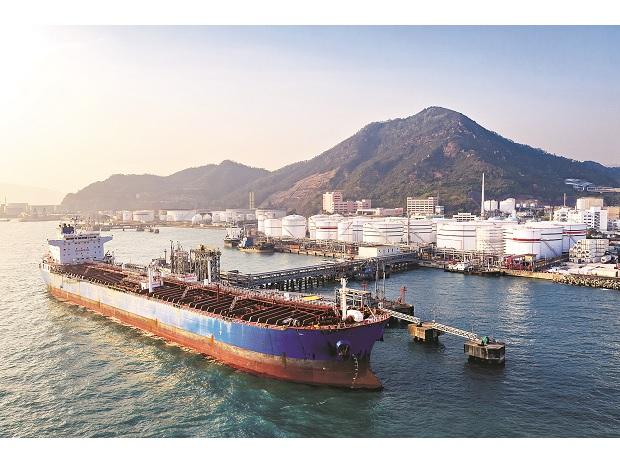
India to release 5 mn barrels of crude from reserves in bid to cool prices
Last Updated on January 23, 2023 by Admin
[ad_1]
India will release 5 million barrels of crude oil from its strategic petroleum reserves in a concerted effort to bring down global crude oil prices. This is roughly equivalent to a day’s consumption in the country.
Sector watchers say while the quantity is not big, it is a symbolic gesture that has wider implications for the global energy markets.
“India has agreed to release 5 million barrels of crude oil from its Strategic Petroleum Reserves. This release will happen in parallel and in consultation with other major global energy consumers including the US, People’s Republic of China, Japan and the Republic of Korea,” the oil ministry said in a statement on Monday.
The development is in line with the US’s call to bring down global crude oil prices, which were crossing $85 a barrel last month. The White House said the US would release 50 million barrels of crude oil from the American Strategic Petroleum Reserves.
This coordinated release of crude oil from strategic reserves will be the first of its kind globally.
Brent, the most popular benchmark for trade in international trade in crude oil, touched at $86.40 a barrel on October 26. Prices have now cooled to below $80 a barrel and traded at $78.86 a barrel on Monday.
India strongly believes that the pricing of liquid hydrocarbons should be reasonable, responsible and be determined by market forces. India has repeatedly expressed concern at supply of oil being artificially adjusted below demand levels by oil producing countries, leading to rising prices and negative attendant consequences,” the oil ministry statement added.
An oil ministry official told Business Standard: “This release of crude oil will be in addition to the existing arrangements in place.” The official did not specify the timeline.
HPS Ahuja, chief executive officer (CEO) of Indian Strategic Petroleum Reserves (ISPRL), the government entity authorised to develop and manage these reserves, said in October some cheaply bought crude oil was being traded. Mangalore Refinery and Petrochemicals (MRPL) got this crude oil, which was stored in strategic reserves. The sale of roughly 5 million barrels of crude oil is underway since August and is expected to be completed by January. This is being done to free up space in strategic reserves for more commercial trade.

It is expected that MRPL and Hindustan Petroleum Corporation Ltd (HPCL) will receive this fresh batch of crude oil.
Both these subsidiaries of Oil and Natural Gas Corporation (ONGC) have pipeline connectivity to the strategic petroleum reserves. India’s three strategic storages — in Visakhapatnam, Mangalore, and Padur — store 5.33 million tonnes (MT) of crude oil.
Visakhapatnam’s storage has a capacity of 1.33 MT (9.77 million barrels), that in Mangalore 1.5 MT (11 million barrels), and the one in Padur 2.5 MT (18.37 million barrels). The combined cost of the three projects has been estimated at Rs 4,098.35 crore. These reserves can meet 9-10 days of India’s crude oil demand.
India is dependent on imports of crude oil to meet around 85 per cent of the domestic requirements. The country imports roughly 226 MT of crude oil every year.
Facing criticism for rising prices, the government had to bring down the taxes it levies on auto fuels. The finance ministry had lowered excise duty on petrol by Rs 5 a litre and on diesel by Rs 10 a litre on November 3.
Most state governments followed suit by reducing value-added tax. Petrol sold at Rs 103.97 a litre and diesel at Rs 86.67 a litre in Delhi. These prices have remained unchanged since November 4.
 Dear Reader,
Dear Reader,
Business Standard has always strived hard to provide up-to-date information and commentary on developments that are of interest to you and have wider political and economic implications for the country and the world. Your encouragement and constant feedback on how to improve our offering have only made our resolve and commitment to these ideals stronger. Even during these difficult times arising out of Covid-19, we continue to remain committed to keeping you informed and updated with credible news, authoritative views and incisive commentary on topical issues of relevance.
We, however, have a request.
As we battle the economic impact of the pandemic, we need your support even more, so that we can continue to offer you more quality content. Our subscription model has seen an encouraging response from many of you, who have subscribed to our online content. More subscription to our online content can only help us achieve the goals of offering you even better and more relevant content. We believe in free, fair and credible journalism. Your support through more subscriptions can help us practise the journalism to which we are committed.
Support quality journalism and subscribe to Business Standard.
Digital Editor
[ad_2]
Source link




